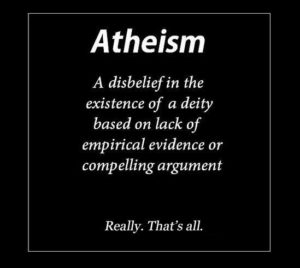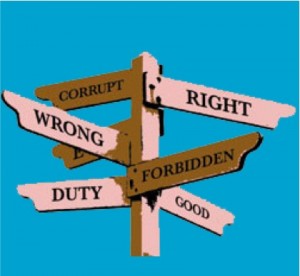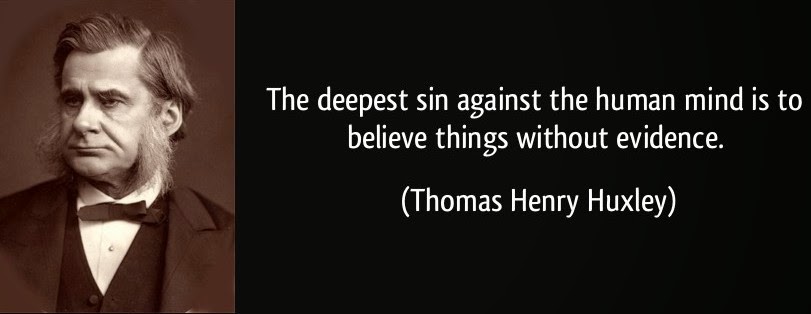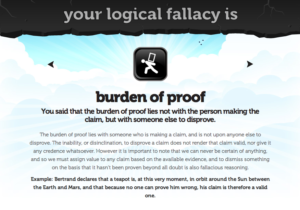Last Updated on 2022-07-08 by Joop Beris
Those of you who read this blog, are aware that I sometimes like to answer posts called “questions for atheists” or words to that effect. Just explore this tag to see a collection of those posts. Usually, these kinds of posts are supposed to ask some hard-hitting questions that leave atheists stumped and/or make them think that there may be something to faith after all. In reality though, these questions are almost always inane in nature, make most atheists roll their eyes and are often based on wrong (deliberate or not) interpretation of what atheism is.
Introduction
Apparently someone over at the Inspired Walk website read a tweet of mine featuring a previous article here on my blog. In response to that article, they sent me this tweet.
@CSceptical 8 Questions for Atheists –> https://t.co/k68hYFaeia
— Inspired Walk (@InspiredWalk) August 11, 2016
I replied, asking if they expected a serious answer to these questions to which the reply simply said “yes”. I decided to indulge them. After all, it’s not the first time I’ve dealt with their material.
The 8 questions for atheists
A quick glance at these 8 questions for atheists, convinced me that these are no questions an atheist would have to avoid answering when asked. They are unlikely to leave anyone stumped who gave the matter a little thought. Most atheists have given much more than a little thought. Let’s dive in, shall we?
QUESTION 1
Is Atheism a LACK of Belief in God or a BELIEF that there is no God?
Most atheists generally claim that atheism is a LACK of belief in God or gods. This definition implies that atheists DO NOT have the ability to believe in God. This definition implies that atheists are INCAPABLE of believing in God. Is this true? Do atheists lack or have an inability to believe in God?
Right of the bat, they’ve got it wrong. Atheism, correctly defined, is indeed a lack of belief in a God or gods. However, this does not imply that atheists do not have the ability to believe in a God. It simply means an atheist lacks belief. Lacking means deficiency or absence of something. It does not imply that such a thing can not exist. Atheists do not lack belief in a God or gods because they can’t believe in one but simply because there is a lack of evidence for such an entity.
We then take a little detour into the bible, citing Romans 1:20-23. Look it up if you wish. It quickly gets worse after this.
Therefore atheists not only suppress the existence of God in their lives but through the theory of evolution they have replaced God with the worship of animals and worship of themselves. The theories of evolution is what has become the atheist’s religion.
Utter nonsense. Atheists do not worship animals nor themselves. We do not gather in buildings praying to the mighty giraffe, we do not have a creed and we don’t read aloud from “On the origin of species“.
QUESTION 2
If God Exists Would You Become A Christian?
If the atheist were given all the “proof” and “evidence” that they needed pertaining to the existence of God, would he/she become a Christian?
Which God would that be? Thor? Zeus? Ra, or any of the other gods that humanity has invented over the course of several millennia? Why would it be your God that is the real deal? As soon as you realise why you do not believe in Thor, you will understand why I feel the same way about your God. To answer your question though, so you can not accuse me of dodging it: if there were any real proof that stood up in the court of science, then yes, reason would demand I accept it and become a Christian. Since no such evidence is forthcoming…
The truth is, it takes humility to accept God. Pride is the seed of atheism. Atheism is the belief that life is “better” without God or that life does not need God.
Reason is the seed of atheism. Atheism is the disbelief in God and yes, it does mean you don’t have to put up with overdressing on Sunday morning and spend some mind-numbingly dull hours sitting on an uncomfortable bench listening to someone recite ancient superstition that should be intellectually embarrassing for anyone to believe in the 21st century.
QUESTION 3
How Do You Determine What’s Right & What’s Wrong?
To the atheist: Where does your sense of morality come from? How do you determine what is acceptable and what is unacceptable?
The same tired old question, which has been asked and answered repeatedly by atheists the world over. We don’t get it from the bible, that’s true. Then again, neither do you. It seems all too obvious that morality comes from us, from fallible human beings. That is why there are so many opinions about what is right or wrong. It could not possibly come from a deity, as Plato already established in his Euthyphro when he asks the question whether good is loved by the gods because it is good, or love of the gods makes a thing good. If the first, good exists separate from God and thus God is not needed for something to be good or if the second, what is good if nothing more than divine whim?
The reason why I say that Christians do not get their morality from the bible either, should be self-evident. If they did, they’d very quickly find themselves in a mental asylum, in prison or on death row.
Morality most certainly doesn’t come from the bible. The Bible has no problem with slavery. The Bible is pro death-penalty, even for offences that seem trivial in the extreme. The morals of God leave much to be desired, judging by the Old Testament. So do the morals of those who believe in a deity. Just open your newspaper or switch on the news. Every kind of cruel, unjust and inhuman act conceivable is done somewhere in the name of some God. It seems as if religious belief almost equals a universal pardon of or a license to cruelty for the faithful. On divine command, it’s perfectly okay to set someone on fire, to hang them, to stone them, to shoot them or to beat them to within an inch of their life. Carve up someone’s genitalia? No way! Oh, your religion demands it? Well go ahead then, cut into that infant. Rather than a fountain of morality, human dignity and compassion, religion seems the opposite. By contrast, you’ve not heard of anyone killed or maimed in the name of disbelief in God.
It’s a very ignorant and insulting claim that atheists can not be moral people when so much evil, so much wickedness and so much cruelty has been committed and is still being committed in the name of some religious belief. It’s time that this argument be put to rest.
QUESTION 4
How Do You Deal With Guilt & Sin in Your Life?
No matter what moral beliefs we may have, all people have felt guilt in their life. Every person including the atheist has felt that they have done wrong in their life and may have felt guilt or remorse or depression as a result.
The question however is: How do atheists deal with guilt and sin in their life? What do atheists do to remove guilt or sin in their hearts?
When it comes to sin, I can be very brief. I don’t deal with sin. Sin is a religious concept and as such, it doesn’t affect me in the least. How I deal with guilt varies. Often, a simple apology will take care of things. For small matters, this is sufficient. For larger issues, sometimes it is impossible to make amends so eventually there is no choice but to shrug it off and go on with my life.
What I can not do, is find relief in the hideous notion of vicarious redemption, where I pretend that a single human sacrifice took care of my wrongdoings for me, absolving me of guilt and moral accountability.
QUESTION 5
Do You Act According To What You Believe or According To What You Lack In Belief?
If atheism is simply a lack in belief in God, then do atheists act according to what they believe in – or do they act according to their lack of belief.
Being an atheist means I lack belief in a God or gods. It doesn’t mean I can’t have any other beliefs. For instance, I could believe that the number 13 is an unlucky number. The examples given in the article are bad examples, though.
Atheists have NO EVIDENCE that non-life can create life but yet they BELIEVE it.
Atheists have NO EVIDENCE as to HOW the universe was created yet they BELIEVE their theories.
Atheists have NO EVIDENCE dinosaurs turned into birds but yet they BELIEVE it.
For one, these statements have very little to do with a disbelief in a God or gods. They refer to fundamental questions about our origin. They are also all false statements. I urge the author to read up on scientific research because there is scientific evidence in all three cases.
That is besides the point though. It should be obvious that all beliefs are not equal. Some beliefs are more realistic than others. For instance, I could believe very firmly that I will win the lottery tomorrow. While it is possible, it’s not very realistic. I could believe that tomorrow, it will be sunny. This is more realistic, based on the fact that it is summer and based on the forecast.
Believing in the things that scientists say, isn’t unrealistic. Science has proven consistently that it works and has given us many wonderful things, like cures for terrible diseases, the Internet, the aeroplane, etc. It has also given us many terrible things. Regardless of that, science has a track record. It delivers. Trusting science is not the same as having irrational and unrealistic beliefs such as those spread by the worlds’ religions. Belief is not the correct word to use because a belief can exist without evidence or even in spite of evidence to the contrary.
The Bible describes belief / faith as the following: Hebrews 11:1 “Now faith is the substance of things hoped for, the evidence of things not seen”.
Therefore the atheist does not behave according to what he lacks belief in – but he behaves according to what he believes in even if that belief is wrong.
The author getting his/her definitions from the bible is unlikely to persuade any atheist. It is also a rather stupid statement. Faith is not evidence of things not seen, it is evidence of precisely nothing. No matter how much you believe in something, no amount of faith is going to make something real or true. If it did, there would be a lot more lottery winners.
Again, things like evolution, cosmology and abiogenesis have little to do with atheism but since the author has just demonstrated he/she knows little about the current state of science, it is rather presumptuous to say that atheists’ “belief” is wrong.
QUESTION 6
Can You Prove HOW the Universe Was Created?
No. Neither can you, for that matter. Simply saying that God did it, doesn’t prove anything. Just because science may not have an exact answer to how or even if the universe came into being, doesn’t mean you can insert an answer which you like best. This is simply a “God of the gaps” argument. It is a fallacy to say that because science doesn’t explain something, this is evidence that your God did it (and not one of the other gods humanity has invented).
QUESTION 7
Can You Prove That God Does Not Exist?
When asked this question atheists argue that it’s not up to them to provide evidence for proof of God. The problem however with their argument is that if they claim God doesn’t exist then they should provide the evidence.
I don’t think the author meant to say “When asked this question atheists argue that it’s not up to them to provide evidence for proof of God”. I think the author meant to say that atheists say they do not need to disprove God. The author attempts to shift the burden of proof. I do not need to prove that God doesn’t exist when there is no reasonable argument that can be made for his/her/its existence in the first place. Atheists don’t generally claim that God doesn’t exist, merely that there is insufficient evidence to make belief in one a reasonable position.
The burden of proof always rests with a person making a claim. For instance, when I say that I am Batman, you are not likely to believe me without some kind of evidence to back it up and no reasonable person would expect you to. So when a Christian says that God is real, it is only reasonable to ask him or her to back up that claim.
QUESTION 8
Do You Know Where You’re Going When You Die?
The atheist cannot prove that heaven and hell does not exist. However, what a tragic day it will be when the atheist discovers the existence of hell because there is no going back and there is no second chance.
Does heaven and hell exist? Yes these places do.
The thinly veiled threat of hell-fire with which Christians have scared people into compliance for some 2000 years. One can almost imagine the author rubbing his/her hands together in glee, imagining the wicked atheists being tormented with everlasting fire. The author claims that heaven and hell exist? Well, I’m still waiting on the evidence. You claim it, you back it up. It’s really that simple.
Where do I go when I die? Well, it depends on what you mean by “I”. If you mean my physical body, I’m as yet undecided whether it will be cremated or donated to science. If you mean my “ego”, my internal narrative, my conscience, I think that will simply cease to exist when my brain stops functioning. Where does it go from there? Oblivion.
Conclusion
These are my answers to these 8 questions for atheists. I don’t shy away from answering questions about atheism. As usual with these kinds of articles, I found very little in the way of original thought or compelling questions. They have managed to inspire me to walk ever further away from religion.








[…] began debunking religious articles I found online and began answering “questions for atheists” type posts. In addition, I began writing articles to provoke and I discussed with believers […]
Atheist live on their own. The rule is come from them self
And your point is?